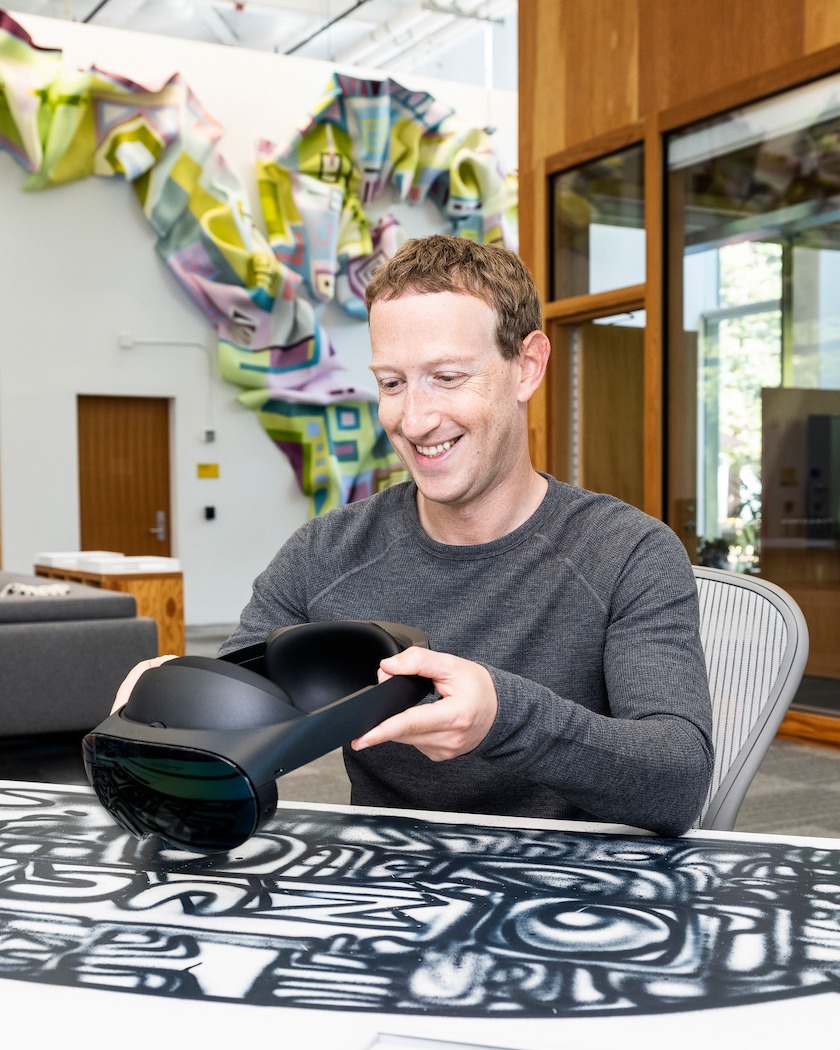A virtual forum for Christian leaders, with technology experts and pastors, analysed the technological and communicative development of the Internet of the future.
![The metaverse promises the development of a new virtual world linked to real everyday experience. / [link]EOI[/link], Flickr CC 2.0.](https://cms.evangelicalfocus.com/upload/imagenes/636154cf452ec_metapor.jpg) The metaverse promises the development of a new virtual world linked to real everyday experience. / [link]EOI[/link], Flickr CC 2.0.
The metaverse promises the development of a new virtual world linked to real everyday experience. / [link]EOI[/link], Flickr CC 2.0.
“I don't know anything about the metaverse!” That was the confession the songwriter Kike Pavón made and with which most of us who attended the forum Church in the metaverse, identifies.
The forum, which gathered around 500 pastors and leaders in a virtual meeting last October 20, aimed to introduce this new world in order to start reflecting on it.
This emerging technology in which the technological giants are investing, offers the promise of an immersive and interactive world.
The metaverse is already part of the conversation, and perhaps it is still more an idea than a reality that can be experienced, but this could change in the coming years as technology and access to what some are already calling “the Internet of the future” continues to develop.
According to technology expert and evangelical pastor Julio Martinez, what is coming is “a paradigm shift, the next technological revolution that will make today's Internet seem like a thing of the past”. But he warned that its definitive development will come within a decade.
Explaining what the metaverse is and why it might be interesting for a church was the focus of the virtual forum organized by GoldenRealm, a company specializing in marketing that helps churches to develop in new technologies.
Hageo Area, director of development and strategy, shared some videos of the setting that is already being created. So far, the metaverse resembles an immersive video game without great graphic quality.
But users can already sense what it aims to be: something that grows beyond the virtual environment, allowing a greater interaction between "physical reality” and the world of pixels and vectors.

Area emphasized the educational, message dissemination and interaction possibilities that this new technology will allow: “How would you like, as a pastor, not only to preach about the crucifixion or the resurrection, but also to take a virtual tour of those places while preaching?”, said Area.
With that in mind, he encouraged pastors to pay attention and get involved as soon as possible in this new virtual world especially to lose their fear of it, something that has weighed down the church's presence in other technological environments on other occasions.
“We do not get angry with the tools, and the metaverse is just a new communication tool”, he pointed out in response to those who emphasized the real dangers, not so virtual, that the metaverse can bring.
“What opportunities are there? NGOs, churches, can enter now, which is the moment of co-creation, where the first users are shaping what this will definitely be in the future”, added Area.
For the GoldenRealm director, “it's the right time to create spaces where we can connect with the people who are going to arrive, because sooner or later they will arrive”.
Since it was a forum primarily for pastors and leaders, the participants had a less technical view, but brought their perspective.
Preacher and influencer Itiel Arroyo consistently pointed to following Jesus' example in looking for people where they are. “If Jesus went into this earthly simulation out of love, why shouldn't the church do the same? ” , he wondered.
Ezekiel Fattore, pastor of Casa Church in Miami agreed that “this is a great opportunity to stop sacrificing teenagers on the altar of our traditions ” .
“The church can do whatever it takes to get the message to the next generation, yet our temples are often turned into museums. It seems that the church should be more like a laboratory, a place to dream, to test, to revolutionize. That is why I am excited about what may happen with the metaverse ” , said the Argentinean pastor.
Pavón underlined that “out of love we can be present ” in any space, but he was “concerned about how to be there. The church is community, communion, sharing. Is the metaverse where you are going to fish for souls? What function will it have? We still have many doubts, but we know that there are cultural tools that we redeem to reach people".
For Julio Martinez, one challenge is for the church “not to be late” . “So far, the church has been reactive, we have not known how to adapt to technological changes. The metaverse does give us time to think, so that we can arrive with our homework done”.
One of the most common criticisms of today's virtual world is that it is designed for entertainment and consumption, and not so much for relationships.
“We are not created to live in a simulation, in a false life. Jesus came to us and following his example, we must not be afraid. If we follow the path of fear, we will react with rejection. If the metaverse is going to be a dark platform, we will also have to be present to be light”, said Arroyo.
“Aren't there already serious problems with the current internet? But we have understood that this is where the mission is, this is where the church should be. If there is an opportunity to save someone, the church must be there”, he noted .
Martinez explained that “the world has become bigger due to technology, but it has also become more tribalised. The frontiers of gospel expansion have been pushed even further. We need missionaries who know that these places exist. We need to rethink what we knew about evangelism.
Fattore added the need to present the gospel message “in new ways, starting with curiosity that is motivated by love”.
The question was not only how the church will be in the metaverse, but whether it is really something that all churches should be involved in.
Arroyo pointed out that every generation finds its platforms to express itself, and “when the rules of the game change, we need humility and the ability to support and launch new players to reach others. At the end of the day it is God's mission, not the mission of each individual”.
For Fattore, “not all churches have to be there, but those who are not there have to support, not attack those who are. The church needs to be there, and we can even contribute financially so that those who are there can do it properly”.
Pavón warned that “we cannot create a church without relationships, in any context we need to foster personal bonds, communities where hugs are real”.

The metaverse can only succeed if the new generation adopts it as its environment. But that does not exclude us adults from being interested.
“There are already metaverses, such as the platform roblox, This virtual environment for playing and interacting is growing a lot among children and teenagers. We have to be there too, but above all to know and understand what they are doing there”, explained Martínez.
For Arroyo, training and discipleship is key: “we have to prepare our children to reject the bad. We can no longer prevent them from having certain temptations, so we have to prepare them to discern and take care of them as much as we can”.
The metaverse promises identity, relationships and fun, as well as satisfying every need. But can it actually do it?
“There is the threat of believing that the metaverse will make us feel complete, that it is a new god. For many it will be a place to search for meaning. We must be there to tell them that meaning lies elsewhere, in another dimension”.
The great danger is “that as Christians we disconnect from the source of meaning, but that can already happen to us today with the technology that surrounds us”, said Itiel Arroyo.
Pavón commented that technical development makes us think of “a very anti-Christian world, however, just as the anti-Christ will come, the victory of Jesus is also unstoppable”.
That is why we can continue to “fight for young people, for those who are coming, even if we do not fully understand their places and spaces".
“What we cannot do in the metaverse is replicate the service. We have an opportunity to be and be church creatively. Sometimes we abandon spaces, and that is sad. We need to be part of the construction so that artists and scientists find in the church a space to thrive”, added Fattore.
Martínez stressed that in the metaverse there will be “very good things, on an educational and interactive level, with possibilities to reach people we would not reach otherwise”.
But at the same time there are risks, “such as exacerbating the isolation of many people. Or new forms of pornography that will be shocking”.
Internally, there is also a risk of “turning the church into a costume party, since in the metaverse we could hide our true identity”, concluded Martínez.
“I think we have laid a first stone of something we can build on. We have talked naturally, without technicalities or futurisms, valuing the context, the reality and seeing the opportunities”, Area told Spanish news website Protestante Digital after the forum.

Las opiniones vertidas por nuestros colaboradores se realizan a nivel personal, pudiendo coincidir o no con la postura de la dirección de Protestante Digital.
Si quieres comentar o